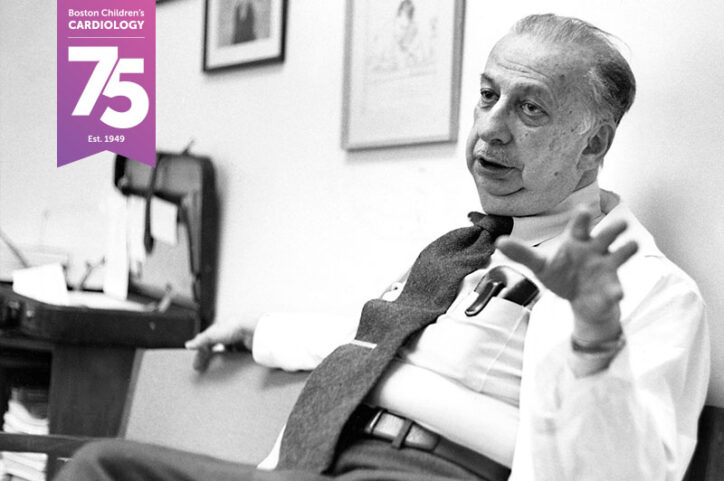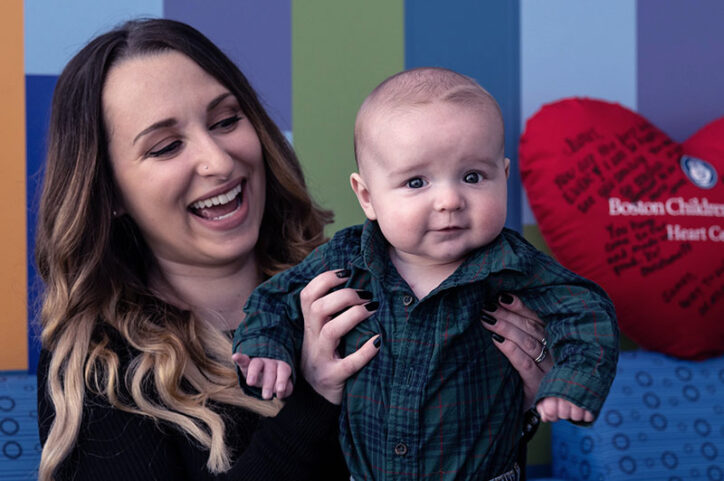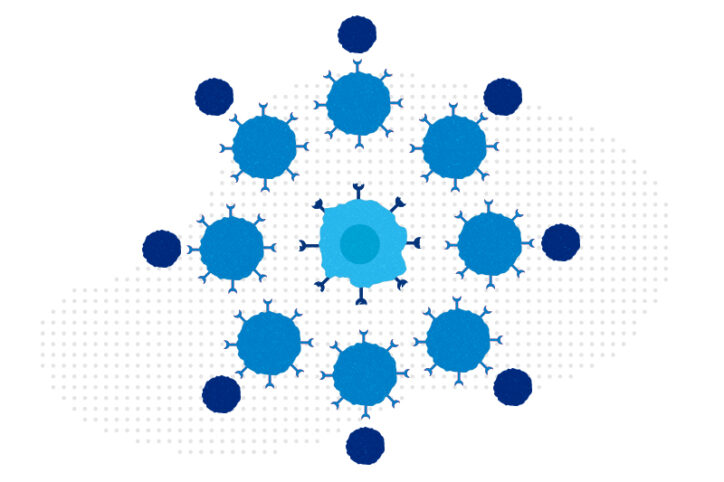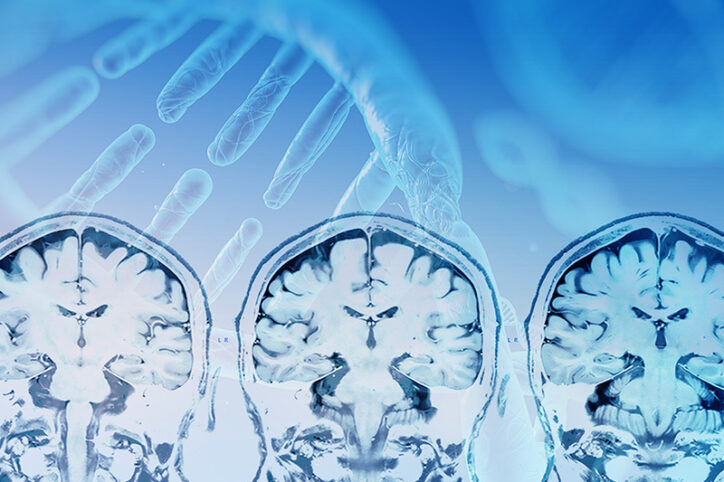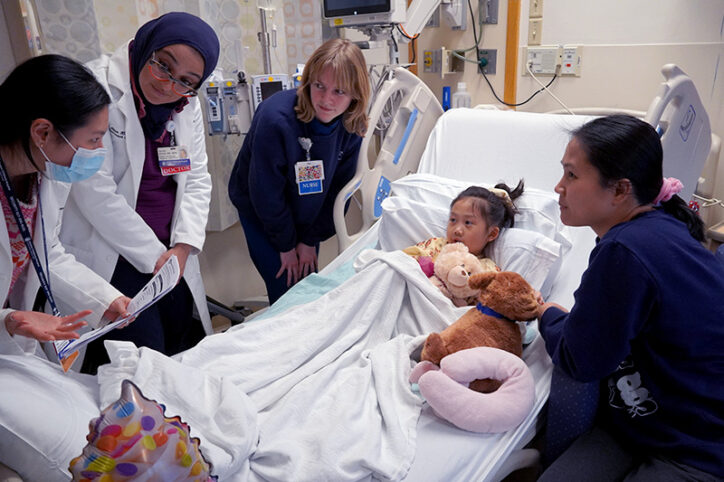The people and advancements behind 75 years of Boston Children’s Cardiology
Boston Children’s Department of Cardiology has more than 100 pediatric and adult cardiologists, over 40 clinical fellows learning the routines of heart care in a major hospital, 12 echocardiogram rooms dedicated to testing the function of a child’s heart, and five labs equipped to perform advanced catheterization procedures. Many other numbers could highlight the dedication that the ... Read More about The people and advancements behind 75 years of Boston Children’s Cardiology
After surgery for heart condition tetralogy of Fallot, James is all joy
Warriors come in all shapes and sizes. Some even smile. In the Irvine family, the lead warrior is a happy one: 6-month-old James, whose cheeriness hides the difficult medical journey he had in the first few months of life. “I have been told by many people that James is an inspiration,” says his mom, Heidi. ... Read More about After surgery for heart condition tetralogy of Fallot, James is all joy
Combining CAR-T cells and inhibitor drugs for high-risk neuroblastoma
Chimeric antigen receptor (CAR)-T cell therapy is a potent emerging weapon against cancer, altering patients’ T cells so they can better find and destroy tumor cells. But CAR-T cell therapy doesn’t work well in every cancer — including many cases of neuroblastoma, a cancer that begins in young children’s nerve tissue and can metastasize to ... Read More about Combining CAR-T cells and inhibitor drugs for high-risk neuroblastoma
When diagnosis is just the first step: The Brain Gene Registry
Through advances in genetic sequencing, many children with rare, unidentified neurodevelopmental disorders are finally having their mysteries solved. But are they? “Once families receive results of genetic testing, that’s just the beginning of a new journey,” says Maya Chopra, MBBS, FRACP, an investigator with the Rosamund Stone Zander Translational Neuroscience Center at Boston Children’s Hospital. ... Read More about When diagnosis is just the first step: The Brain Gene Registry
Revisiting race and ethnicity in clinical guidelines
Health care institutions often rely on clinical pathways in assessing patients and making decisions about their care. Some of these care algorithms incorporate race, ethnicity, or ancestry as factors in decision making. But is this helpful or harmful? And is there solid evidence to justify treating people of different racial or ethnic backgrounds differently? Robert ... Read More about Revisiting race and ethnicity in clinical guidelines
Helping clinicians embrace family-centered rounds
If you’ve ever been hospitalized, you may have experienced this: groups of doctors coming in and talking about you like you’re not there or addressing you in a perfunctory manner, using medical jargon you don’t understand. Peggy Markle was taken aback when her son was hospitalized for a not-yet-defined condition in Washington and his care ... Read More about Helping clinicians embrace family-centered rounds


